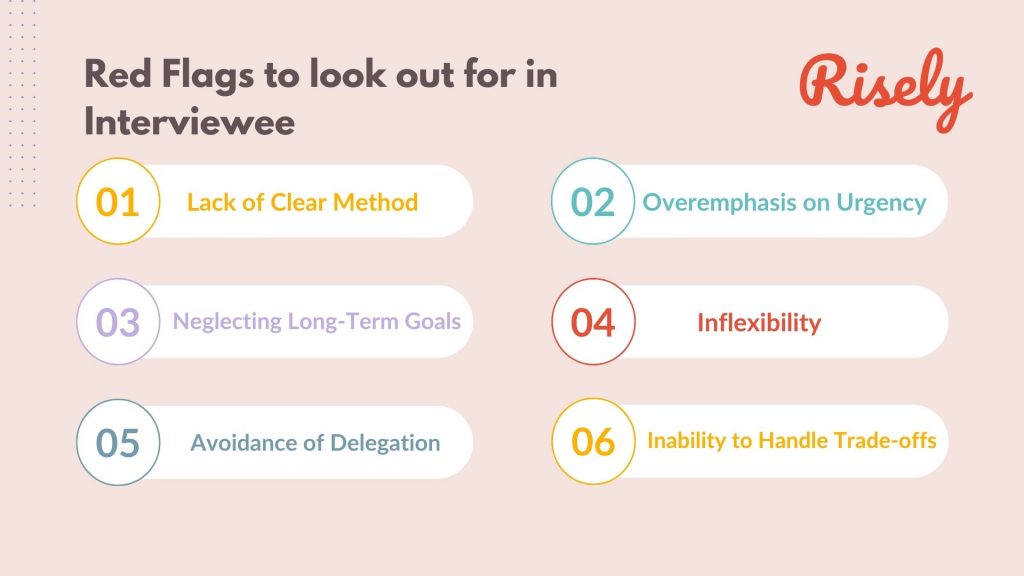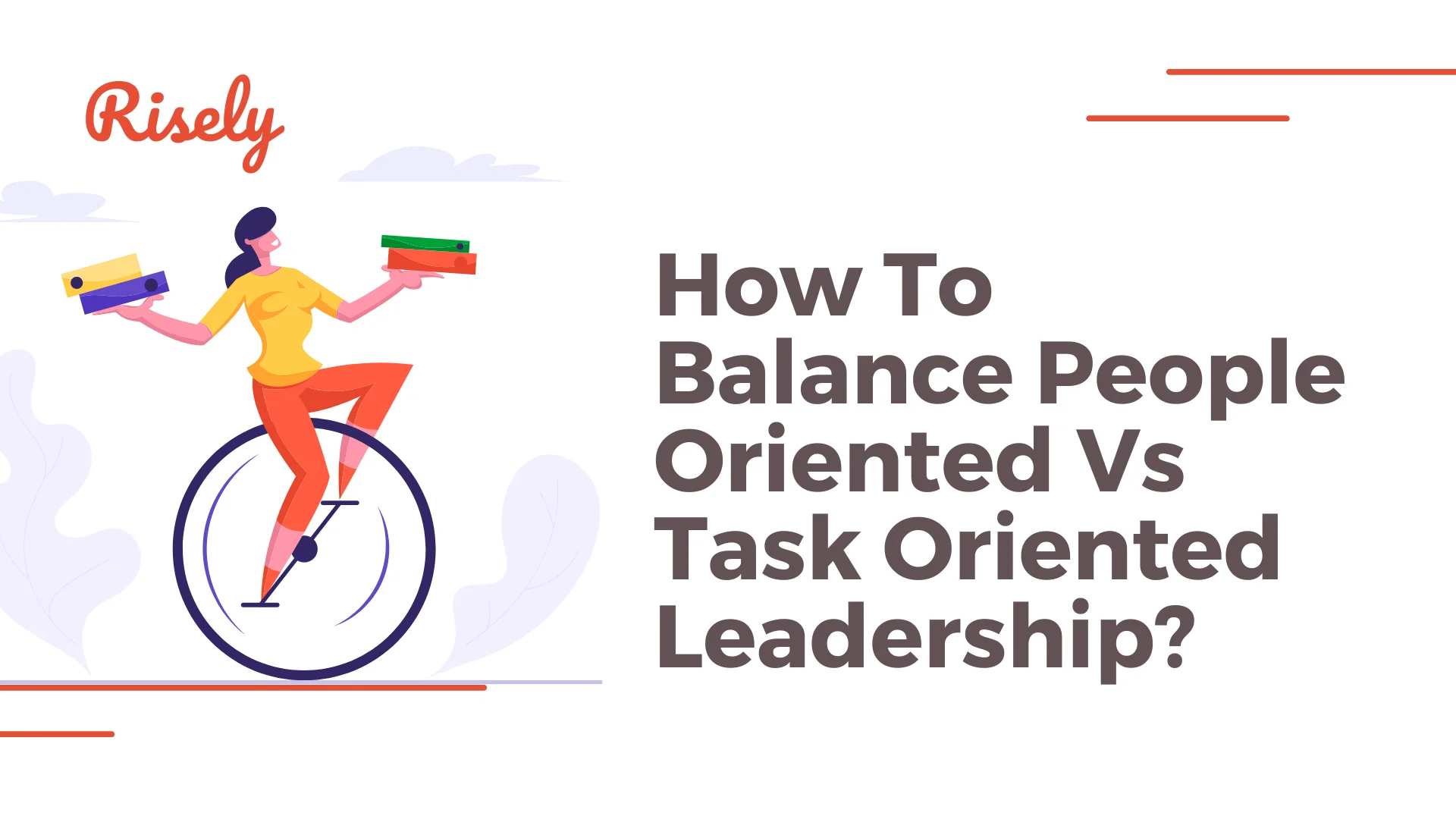Top 8 Prioritization Interview Questions and Its Importance
The ability to prioritize tasks effectively has become crucial for professionals in virtually every industry. With multiple deadlines, competing demands, and limited resources, the ability to determine what tasks to tackle first and how to allocate your time and efforts are vital for success. This is why prioritization interview questions are key to employers who want to assess a candidate’s ability to handle complex workloads and make informed decisions under pressure. In this blog, we will explore the importance of workplace prioritization and some common prioritization interview questions is that assess your prioritization skills. We will discuss the meaning and significance of these prioritization interview questions. Whether you are a seasoned professional or just starting your career, mastering prioritization skills can significantly enhance your performance and set you apart from the competition.What is the Importance of Prioritization Interview Questions?
Prioritization interview questions are crucial for evaluating candidates’ ability to manage their time effectively, make informed decisions, solve problems, stay organized, and adapt to changing circumstances. These prioritization interview questions help employers assess a candidate’s critical skills that are highly valued in a professional environment. Effective prioritization is essential for meeting deadlines, managing resources efficiently, and maximizing productivity. It demonstrates a candidate’s ability to handle complex situations, make sound judgments, and adjust priorities. By asking prioritization interview questions, employers can gauge a candidate’s ability to handle the demands of a dynamic work environment and identify candidates who are well-suited for the role and can contribute positively to the team’s success.Why do Managers Need to Evaluate Prioritization Skills?
Managers must evaluate candidates’ prioritization skills because it is a fundamental aspect of effective time management and productivity in the workplace. Efficiently allocating time, resources, and effort to the most important tasks and projects is critical for meeting deadlines, achieving goals, and ensuring that the team’s efforts are aligned with the team’s objectives. Managers must assess their candidates’ prioritization skills to ensure they make informed decisions about what tasks to focus on, set realistic deadlines, and manage their workload effectively.
8 Most Common Prioritization Interview Questions with Answers
How do you typically determine which tasks or projects to prioritize when you have multiple competing deadlines?
The prioritization interview question assesses a candidate’s ability to prioritize tasks and projects effectively in a time-sensitive, deadline-driven environment. It is important because prioritization is a critical skill that ensures that work is completed efficiently, deadlines are met, and resources are allocated effectively. This question helps the interviewer understand the candidate’s decision-making process, organizational skills, and ability to handle multiple tasks simultaneously. For example, “When I have multiple competing deadlines, I follow the Eisenhower Matrix. I categorize tasks into four quadrants: urgent and important, important but not urgent, urgent but not necessary, and neither. For example, during a product launch, I had to handle customer support tickets (urgent and important) and plan the next marketing campaign (important but not urgent).”Can you describe a situation where you had to prioritize tasks with limited time and resources? How did you handle it?
The question is intended to assess a candidate’s ability to manage tasks efficiently with limited time and resources. It is essential because employees often need to prioritize tasks effectively to achieve optimal results despite limitations in a fast-paced work environment. This question helps the interviewer understand the candidate’s ability to handle challenging situations, make tough decisions, and deliver outcomes despite constraints. For example, “In my previous role, I faced a situation where we had to fix a critical software bug before the product release. We were short on time and resources, so I conducted a quick team meeting, reassigned tasks, and focused on the most critical aspects. It was challenging, but we resolved the bug just before release.”How do you ensure you can meet deadlines and deliver results while simultaneously managing multiple tasks?
The question aims to assess a candidate’s ability to effectively manage their workload and deliver results within the given deadlines despite having multiple tasks to handle concurrently. It is important because in today’s fast-paced work environment, employees are often required to juggle multiple tasks simultaneously, and meeting deadlines is crucial for maintaining productivity and achieving organizational goals. This question helps the interviewer understand the candidate’s organizational skills, time management abilities, and ability to prioritize tasks effectively. For example: “I rely on time management techniques like the Pomodoro method, which helps me focus. I also use project management software to track tasks and deadlines. For instance, I once managed simultaneous content creation and social media campaigns for our company, ensuring all deadlines were met through effective time management and team collaboration.”How do you prioritize tasks that require immediate attention versus those that are important but not urgent?
The question is intended to assess a candidate’s ability to differentiate between urgent and important tasks and how they prioritize and manage these tasks accordingly. It is crucial because employees often face a mix of critical tasks in a work setting, and understanding how to effectively prioritize and manage them can significantly impact productivity and outcomes. This question helps the interviewer gauge the candidate’s ability to handle time-sensitive tasks while not neglecting important but less urgent tasks. For example: “I use the “two-minute rule.” If a task takes less than two minutes, I do it immediately. For important but not urgent tasks, I schedule dedicated time. For instance, in a customer service role, addressing immediate customer issues was a priority. I scheduled specific time blocks to work on process improvements (important but not urgent).”Other Interesting Reads
What tools or techniques do you use to keep track of your tasks and deadlines and ensure you are working on the most important ones first?
The prioritization interview question is aimed at evaluating a candidate’s approach to task and deadline management and their ability to prioritize important tasks effectively. It is vital because effective task management and prioritization are essential skills in today’s fast-paced work environment to ensure productivity and meet deadlines. This question helps the interviewer assess the candidate’s organizational skills, use of tools or techniques, and ability to prioritize tasks to achieve desired outcomes. For example, “I utilize task management apps to list, categorize, and set task deadlines. Additionally, I employ the “ABC” method to categorize tasks by importance. For instance, when managing a complex project, I used different tools to track tasks and prioritize them using the ABC method.”How do you balance short-term and long-term priorities when managing your workload?
The question is intended to assess a candidate’s ability to balance immediate tasks and long-term goals and effectively manage their workload accordingly. It is crucial because employees often struggle to balance urgent short-term tasks with important long-term projects or strategic objectives in a work setting. This question helps the interviewer evaluate the candidate’s ability to prioritize and manage tasks strategically, considering short-term and long-term priorities. For example, “I allocate a percentage of my workweek to long-term projects. While working in sales, I spent 80% of my time on daily sales targets and 20% on long-term strategies, ensuring a balance between immediate and future goals.”
How do you ensure that you are able to maintain focus and avoid distractions while working on high-priority tasks?
The question evaluates a candidate’s ability to stay focused and productive while working on important tasks, despite potential distractions. It is important because, in today’s work environment, distractions can easily hinder productivity and impact the timely completion of high-priority tasks. Therefore, this question helps the interviewer assess the candidate’s strategies and techniques for maintaining focus and avoiding distractions, which are crucial skills for efficient task management. For example, “I create a distraction-free environment, turn off non-essential notifications, and use time management apps to block distracting websites. I also communicate to my team that I’m in a focused work mode. In my marketing role, this helped me concentrate on campaign strategies and meet deadlines.”How do you handle situations where you are overwhelmed with tasks and deadlines? How do you decide what to prioritize in such scenarios?
The question aims to assess a candidate’s ability to manage high-pressure situations with multiple tasks and deadlines. In addition, it evaluates the candidate’s prioritization skills and ability to make effective decisions in a time-constrained and overwhelming work environment. This question is essential because handling overwhelm and prioritizing tasks is crucial for managing workload efficiently and meeting deadlines effectively. For example, “In such situations, I first identify critical deadlines and high-impact tasks. I delegate tasks when possible and negotiate deadlines when necessary. I also communicate my situation to the team for support. Once, during a product launch, we were overwhelmed, so I reassigned tasks, extended a non-critical deadline, and successfully delivered the project.” Check out more resources to become a better interviewer here: Top 5 Interviewer Skills That You Need To Master
Red Flags to look out for in Interviewee
- Lack of Clear Method: If the interviewee can’t explain a clear method for prioritization, it may indicate they don’t have a structured approach to handling tasks.
- Overemphasis on Urgency: If someone consistently prioritizes tasks solely based on urgency without considering importance, it’s a red flag. Prioritization should consider both factors.
- Neglecting Long-Term Goals: Focusing too much on short-term tasks and not considering long-term goals can be problematic. Prioritization should strike a balance.
- Inflexibility: Being rigid and unwilling to adjust priorities based on changing circumstances may indicate difficulty in adaptability.
- Avoidance of Delegation: An unwillingness to delegate tasks, especially when overwhelmed, can indicate poor prioritization skills.
- Inability to Handle Trade-offs: If an interviewee can’t discuss situations where they had to make tough decisions and trade-offs between tasks, it may suggest a lack of experience or skill in prioritization.
Conclusion
In today’s competitive job market, employers highly value prioritization skills as they indicate an individual’s ability to handle complex workloads, meet deadlines, and make informed decisions. By understanding the meaning and significance of prioritization interview questions, you can demonstrate your ability to prioritize tasks effectively and stand out as a top candidate. Remember to practice and hone your prioritization skills, as they are crucial for job interviews and also for your overall career success. So, be prepared, stay organized, and master the art of prioritization to excel in your professional endeavors!Are your prioritization skills top-notch? Or is there more to do?
Take the free prioritization skill assessment for managers to find out the errors holding you back now.
Prioritization Interview Questions FAQs
How do you answer prioritization questions in an interview?
When answering prioritization interview questions, it’s important to provide thoughtful and strategic responses demonstrating your ability to manage tasks effectively and make informed decisions.
What are the 4 levels of prioritizing tasks?
The 4 levels of prioritizing tasks are:
– High priority and high urgency
– High priority and low urgency
– Low priority and high urgency
– Low priority and low urgency
– High priority and high urgency
– High priority and low urgency
– Low priority and high urgency
– Low priority and low urgency
What are the 3 key components of prioritizing?
The 3 key components to prioritizing are urgency, importance, and resources.
What are examples of prioritization?
Examples of prioritization can include:
– Prioritizing tasks based on deadlines
– Prioritizing tasks based on impact
– Prioritizing tasks based on dependencies
– Prioritizing tasks based on deadlines
– Prioritizing tasks based on impact
– Prioritizing tasks based on dependencies
Other Related Blogs
How To Balance People Oriented Vs Task Oriented Leadership?
Finding the right balance between these two leadership styles is essential for creating a productive work environment and achieving short-term and long-term goals. It requires understanding the strengths and weaknesses…
Multitasking is killer, a killer of your effort
Multitasking is killer, a killer of your effort Are you reading this in your early morning round-up of news? Or while driving? Or worse, amid a conversation with someone? It…
5 Frameworks to Master Prioritization Skills
Ever feel like your to-do list has morphed into a never-ending monster, overflowing with tasks and projects all vying for your attention? You’re not alone. As a manager, juggling priorities…
7 Ways to Ensure Discipline in the Workplace for Managers
Do you ever feel like you can’t enforce discipline in the workplace? Do your employees seem to get away with anything? Maybe it’s time to take a look at your…


